Progarchives.com has always (since 2002) relied on banners ads to cover web hosting fees and all.
Please consider supporting us by giving monthly PayPal donations and help keep PA fast-loading and ad-free forever.
/PAlogo_v2.gif) |
|
Post Reply 
|
Page 123 4> |
| Author | ||
SteveG 
Forum Senior Member 

Joined: April 11 2014 Location: Kyiv In Spirit Status: Offline Points: 20474 |
 Topic: How do you define Old and New Prog? Topic: How do you define Old and New Prog?Posted: February 01 2015 at 12:36 |
|
|
With the never ending debate as to what's better, Old Prog or New Prog, I thought it would be a good idea to try to figure out just exactly what we (or some of us) are always arguing about? How do you define Old and New Prog? And if you don't distinguish between the two, please state so. Thanks.
Edited by SteveG - February 01 2015 at 12:36 |
||
 |
||
LearsFool 
Prog Reviewer 

Joined: November 09 2014 Location: New York Status: Offline Points: 8617 |
 Posted: February 01 2015 at 14:05 Posted: February 01 2015 at 14:05 |
|
|
'83-'85 was the big changeover, really: '83 had Depois Do Fim and '84 had Marsbeli Kronikak to close out classic symphonic, and that period had the first big neo, particularly of course Marillion (Script For A Jester's Tear '83, Misplaced Childhood '85).
Yes joined on the pop rock/pop prog circuit in '83 with 90125 to finally join Genesis. And in general, the classics had been dropping out around '80 already; the years I note are the last dying days of the old and the start of the new. The process wasn't complete until the prog revival with Hybris in '92 and beyond, and the adjacent rise of prog metal, though.
|
||
 |
||
HackettFan 
Forum Senior Member 
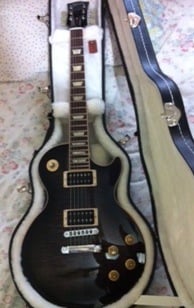
Joined: June 20 2012 Location: Oklahoma Status: Offline Points: 7946 |
 Posted: February 01 2015 at 14:36 Posted: February 01 2015 at 14:36 |
|
|
I don't distinguish between old and new. There are different genres, but old versus new is not ever how I distinguished them. Before coming to PA I would have called Symphonic Prog as Prog (no distinction between Prog and Progressive Rock). Prog would have been a sub-genre of Avant-Garde rock. Zappa was what I would have called Art-Rock, a different sub-genre of Avant-Garde. I don't know where I would have gotten that from. I now happily go by the PA definitions and am quite comfortable with them. I do recognize Neo and other genres as significantly different by and large from 70s output, but there is nothing privileged or rule-governed about that. Anglagard, for instance, is very consistent with the 70s sensibility.
|
||
 |
||
Raff 
Special Collaborator 

Honorary Collaborator Joined: July 29 2005 Location: None Status: Offline Points: 24391 |
 Posted: February 01 2015 at 14:39 Posted: February 01 2015 at 14:39 |
|
|
Micky (my husband) and I are working on the albums that will be part of this summer's Battle of the Bands, and so far we have decided (with the help of other Collabs) on 1985 as the watershed between Classic and Modern prog. Some people, however, maintain that 1989 is the cut-off date.
|
||
 |
||
Cristi 
Special Collaborator 
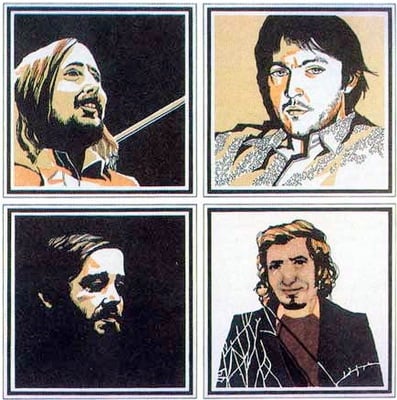
Crossover / Prog Metal Teams Joined: July 27 2006 Location: wonderland Status: Offline Points: 41264 |
 Posted: February 01 2015 at 14:46 Posted: February 01 2015 at 14:46 |
|
 so what happened in 1985? or 1989 for that matter? |
||
 |
||
lazland 
Prog Reviewer 

Joined: October 28 2008 Location: Wales Status: Offline Points: 13240 |
 Posted: February 01 2015 at 14:46 Posted: February 01 2015 at 14:46 |
|
|
Ahhhhh. 1989.
Walter............ Walter............ Walter............ Still digging them tunes 
|
||
|
Enhance your life. Get down to www.lazland.org
|
||
 |
||
RockHound 
Forum Senior Member 
Joined: March 03 2013 Location: USA Status: Offline Points: 518 |
 Posted: February 01 2015 at 14:53 Posted: February 01 2015 at 14:53 |
|
|
These types of boundaries are extremely fuzzy by nature, but for me (and perhaps me only) the emergence of neo-prog bands in the '80's is as good a watershed event as any. And by 1994 the floodgates of new prog really seemed to open wide, with a whole new generation of bands moving to the forefront. This and the emergence of the web, IMHO, really revitalized the genre.
|
||
 |
||
Raff 
Special Collaborator 

Honorary Collaborator Joined: July 29 2005 Location: None Status: Offline Points: 24391 |
 Posted: February 01 2015 at 14:56 Posted: February 01 2015 at 14:56 |
|
1985 was the heyday of the Neo-Prog movement, after which things started going into a decline (albeit a temporary one. It was also the year before Metallica's Master of Puppets (a seminal album for progressive metal) was released. Most importantly, though, we (and other Collabs) felt that most of the albums released after 1985 wouldn't really qualify as belonging to the Classic era. Case in point: Talk Talk's Spirit of Eden, by many considered as the first post-rock album. |
||
 |
||
Stool Man 
Forum Senior Member 

Joined: January 30 2007 Location: Anti-Cool (anag Status: Offline Points: 2689 |
 Posted: February 01 2015 at 15:07 Posted: February 01 2015 at 15:07 |
|
|
Neo means new, so I'd say the start of neo is it. Specifically, the earliest release by an act in PA's Neo Prog subgenre, whichever that may be.
Bands from before that time who continued afterwards are still old prog, obviously |
||
|
rotten hound of the burnie crew
|
||
 |
||
Dean 
Special Collaborator 

Retired Admin and Amateur Layabout Joined: May 13 2007 Location: Europe Status: Offline Points: 37575 |
 Posted: February 01 2015 at 18:31 Posted: February 01 2015 at 18:31 |
|
|
There is no such thing as New Prog, it's a made-upism originally coined by lazy journalists around 10 years ago for bands like Muse and Coheed and Cambria (even Doves have been tagged New Prog by some bone-idle lazy-arsed muso-journalist ... oh wait, that's what they call themselves). This latest "fad" of using it when referring to modern progressive rock is a recent trend here that achieves nothing since it is inaccurate and misleading. I see now that it has even wheedled its way into Wikipedia - this is of course because Wikipedia is edited by know it all spotty numpties who only think they know it all.
We do not classify Progressive Rock music by chronology, it is as helpful as classifying it by the population density of the band's hometown or lead guitarists shoe size.... oh, I much rather listen to 8˝ Prog, it's so much better than 7˝ Prog (or 43 Prog and 41 Prog if they are European). We classify music by musical style and genre similarity, and New Prog is not a genre nor is it a style of music. There has not been a new subgenre or new musical style in Progressive Rock for over twenty years. As we know, punk did not kill Prog because Prog did not die and Prog bands of the 70s continued into the 80s and beyond. So since it did not die and never went away then there can be no demarcation between so-called New and so-called Old Prog. It may have had peaks and dips along the way, but it's an unbroken continuation just the same. And btfw: Neo Prog is not new Prog - Neo Prog started in the late 1970s when Progressive Rock was less than ten years old - how the blithering heck can a subgenre of Progressive Rock that is in itself 37 years old be called "New" any-effing-thing when the whole genre is only 46 years old. Just because the noun phrase Neo Prog that was coined at some unspecified time in the mid 1980s (long after the subgenre had emerged) contains the prefix Neo- (meaning new, recent or modern) it does not mean that the subgenre is in any way new, recent or flipping modern. What next? Do we call the Progressive Rock made between 1973 and 1978 Inbetweenie Prog? Edited by Dean - February 01 2015 at 18:32 |
||
|
What?
|
||
 |
||
Argonaught 
Forum Senior Member 

Joined: June 04 2012 Location: Virginia Status: Offline Points: 1413 |
 Posted: February 01 2015 at 18:50 Posted: February 01 2015 at 18:50 |
|
I might be mistaken, but I believe that Depois Do Fim was recorded in the 1970s, but not released until 1983.
|
||
|
Thank you, Fripp, for our daily Prog (Red 39:54)
|
||
 |
||
LearsFool 
Prog Reviewer 

Joined: November 09 2014 Location: New York Status: Offline Points: 8617 |
 Posted: February 01 2015 at 18:54 Posted: February 01 2015 at 18:54 |
|
Indeed, recorded 1978. Its pushed back release is what marks it as a bookend. Can't do much when not in the public eye.
|
||
 |
||
Rick Robson 
Forum Senior Member 
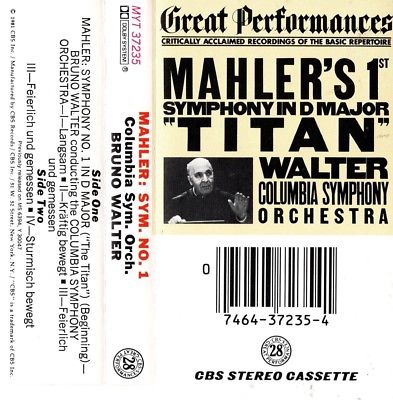
Joined: September 03 2013 Location: Rio de Janeiro Status: Offline Points: 1607 |
 Posted: February 01 2015 at 18:59 Posted: February 01 2015 at 18:59 |
|
|
^No, it was recorded in 1982 and released in 1983, in my hometown.
|
||
 "Music is a higher revelation than all wisdom and philosophy." LvB |
||
 |
||
LearsFool 
Prog Reviewer 

Joined: November 09 2014 Location: New York Status: Offline Points: 8617 |
 Posted: February 01 2015 at 19:32 Posted: February 01 2015 at 19:32 |
|
|
^ It certainly was recorded in your backyard, but everything I read says cut '78, first played on the radio '82, and physically released '83.
|
||
 |
||
progbethyname 
Forum Senior Member 

Joined: July 30 2012 Location: HiFi Headmania Status: Offline Points: 7750 |
 Posted: February 01 2015 at 19:48 Posted: February 01 2015 at 19:48 |
|
You had me at ' numpties.'  I will say though with seriousness, that the 'Neo' and 'modern' terms get thrown into the same meaning far too often, to describe recent progressive music outputs. Not the same thing I feel. But hey, it's nothing to get too upset about anyway. Let the numpties be the numpties that they are. I have come to realize in life that you can't fix ignorance with people. You can only try to make them aware of the problem itself. |
||
|
Gimmie my headphones now!!! 🎧🤣
|
||
 |
||
The Dark Elf 
Forum Senior Member 

VIP Member Joined: February 01 2011 Location: Michigan Status: Offline Points: 12656 |
 Posted: February 01 2015 at 22:07 Posted: February 01 2015 at 22:07 |
|
|
Everything went to hell musically after 1979. So there's that.
|
||
|
...a vigorous circular motion hitherto unknown to the people of this area, but destined
to take the place of the mud shark in your mythology... |
||
 |
||
Progosopher 
Forum Senior Member 
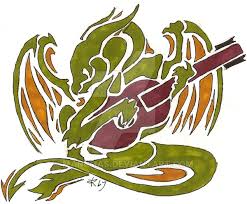
Joined: May 12 2009 Location: Coolwood Status: Offline Points: 6393 |
 Posted: February 01 2015 at 23:04 Posted: February 01 2015 at 23:04 |
|
|
It all depends on whether you are using the terms "old" and "new" chronologically or to indicate a shift in sound or style. Specific dates that indicate the former shift as time progresses (heh), so any distinction made would outdate itself eventually. Sounds and styles overlap, even with newer artists adopting the older approaches of their influences, what some might call retro-prog (a term only possibly in our era of Newspeak), and this presents a different problem. I like to see it all in terms of a continuum, or rather an interconnecting web that is constantly modifying with each new artist, recording, release, etc. Distinctions may be drawn for a variety of reasons, but none of them are absolute. Hence, the constant debate. Even when we are clear on our own definitions of terms, which we are often not, we can debate those very definitions.
|
||
|
The world of sound is certainly capable of infinite variety and, were our sense developed, of infinite extensions. -- George Santayana, "The Sense of Beauty"
|
||
 |
||
richardh 
Prog Reviewer 
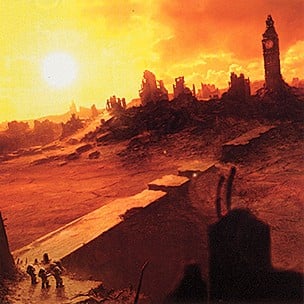
Joined: February 18 2004 Location: United Kingdom Status: Offline Points: 26108 |
 Posted: February 02 2015 at 01:04 Posted: February 02 2015 at 01:04 |
|
|
Old Prog was made a long time ago
New Prog was made more recently hope that helps
|
||
 |
||
Cristi 
Special Collaborator 

Crossover / Prog Metal Teams Joined: July 27 2006 Location: wonderland Status: Offline Points: 41264 |
 Posted: February 02 2015 at 01:13 Posted: February 02 2015 at 01:13 |
|
 now I gotta go listen to some inbetween prog  |
||
 |
||
Svetonio 
Forum Senior Member 
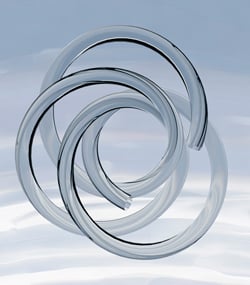
Joined: September 20 2010 Location: Serbia Status: Offline Points: 10213 |
 Posted: February 02 2015 at 01:33 Posted: February 02 2015 at 01:33 |
|
|
For me, new prog is a music by any prog band that has released the debut album in last five-six years.
However, differences in the styles of prog rock viewed by decades are enormous, and when we know that the prog rock does not come only from one country and that the prog rock varies by country of origin, just like bread or beer, that increases the difference between the old and the new. For example, prog rock in the country where I was born - former Yugoslavia - beginning in the late sixties based at Yugoslav vision of prog rock without a direct influence from some foreign prog rock styles and, what is the most important, our singers were singing in the mother language what I consider very important and so beautiful because nothing creates more diversity than language does. This is one of the first Yugoslav prog epics titled Prvo svetlo u kući broj 4 ("The First Light in the House Number 4"), recorded in 1969, by Belgrade's band Korni Grupa (also know as Kornelyans - they were released an album in Italy), and released in 1970 as EP. Punk rock and New Wave in '80s were disaster for prog rock in this corner of the world, but somehow it was born again. However, it's now something absolutely different than that ancient Yugoslav prog. So here is a pretty original instrumental track and great video released in 2009 - so that's 40 yrs after above track was recorded - by Belgrade's band Tripcycle; already in Prog Archives as Eclectic prog band and as one of the first acts that were added to PA due to my suggestions as well  Everyone can see (hear) that incredible difference between the two authentic tracks from two different epochs; that diversity is complete and stunning. Edited by Svetonio - February 02 2015 at 04:53 |
||
 |
||
Post Reply 
|
Page 123 4> |
| Forum Jump | Forum Permissions  You cannot post new topics in this forum You cannot reply to topics in this forum You cannot delete your posts in this forum You cannot edit your posts in this forum You cannot create polls in this forum You cannot vote in polls in this forum |